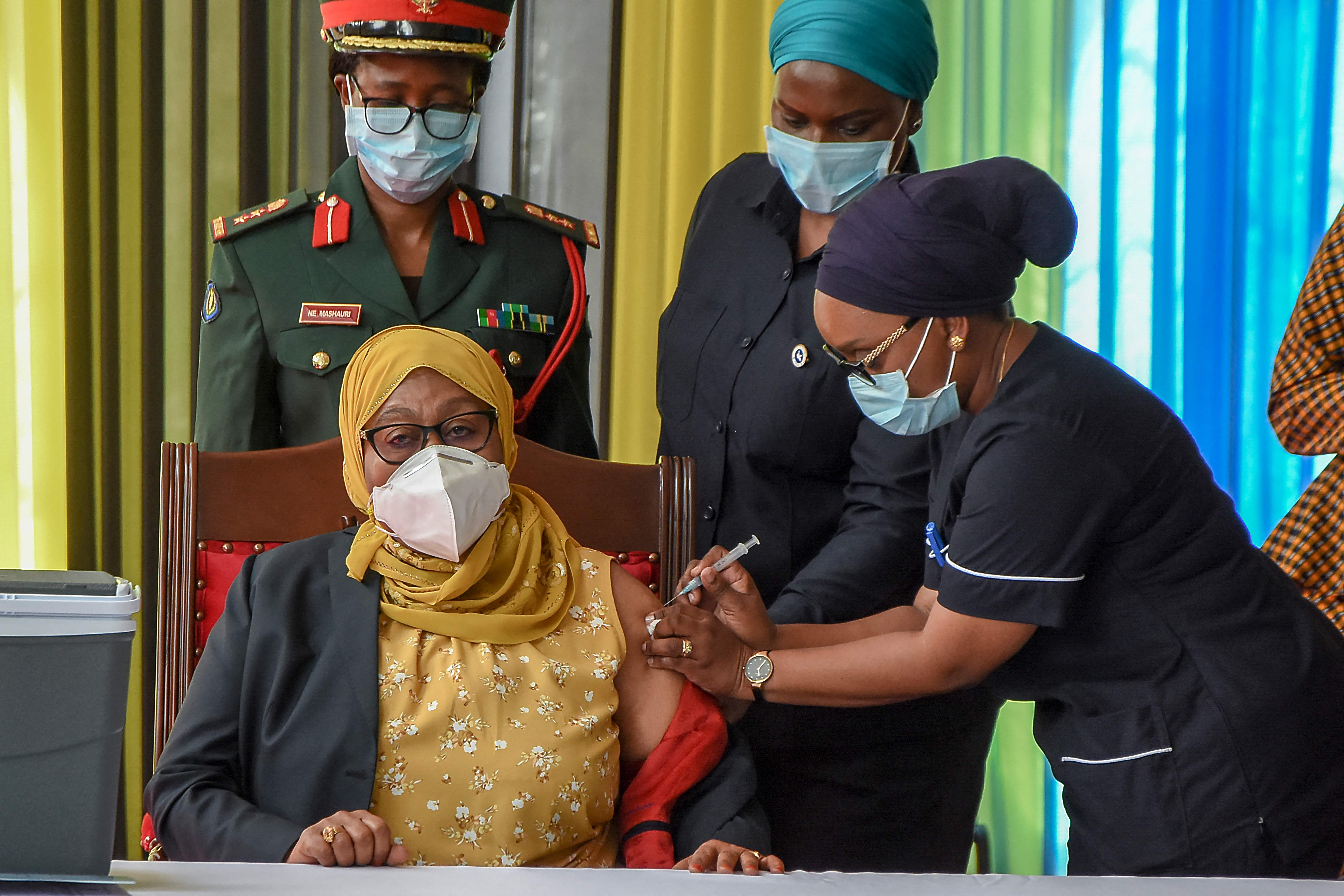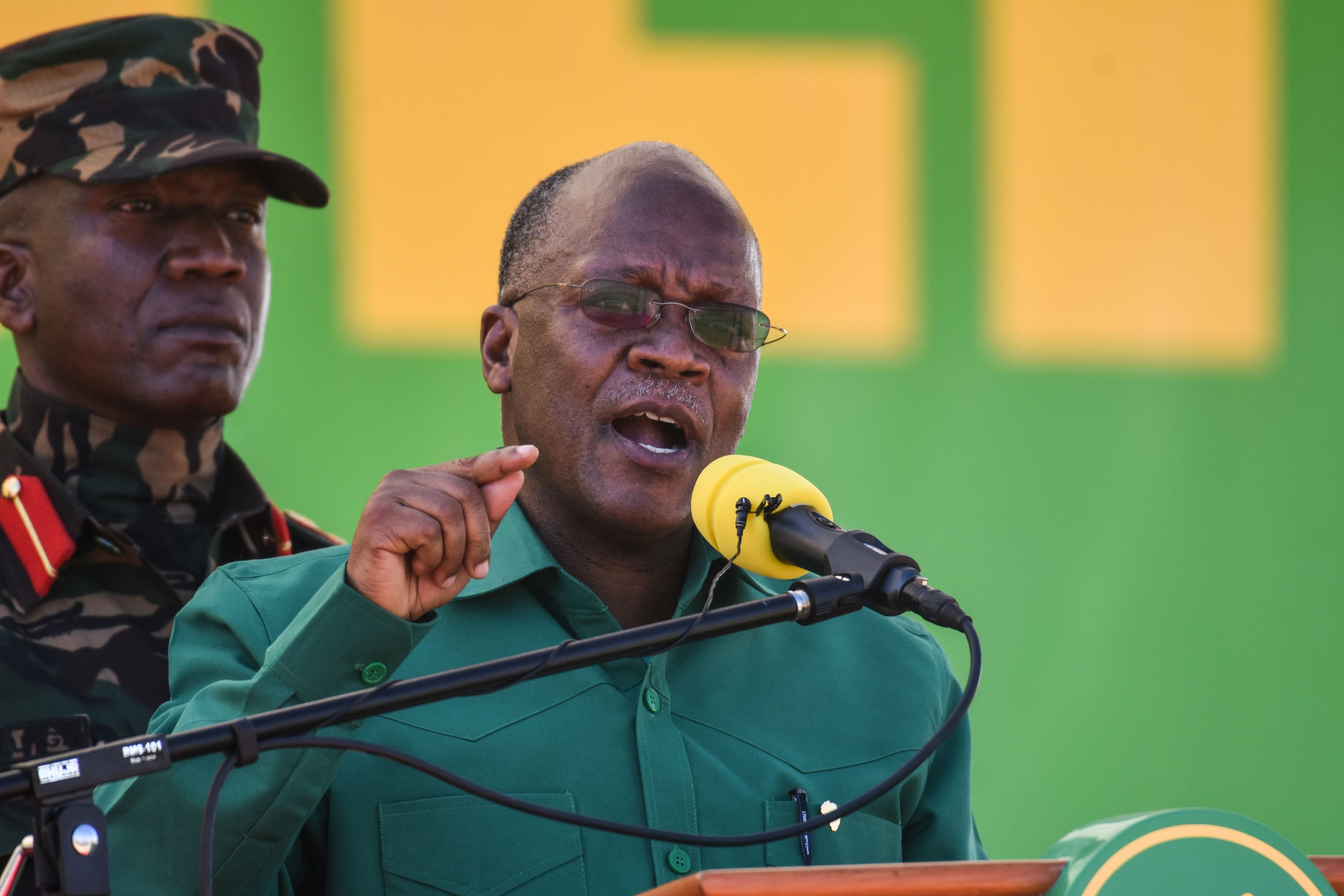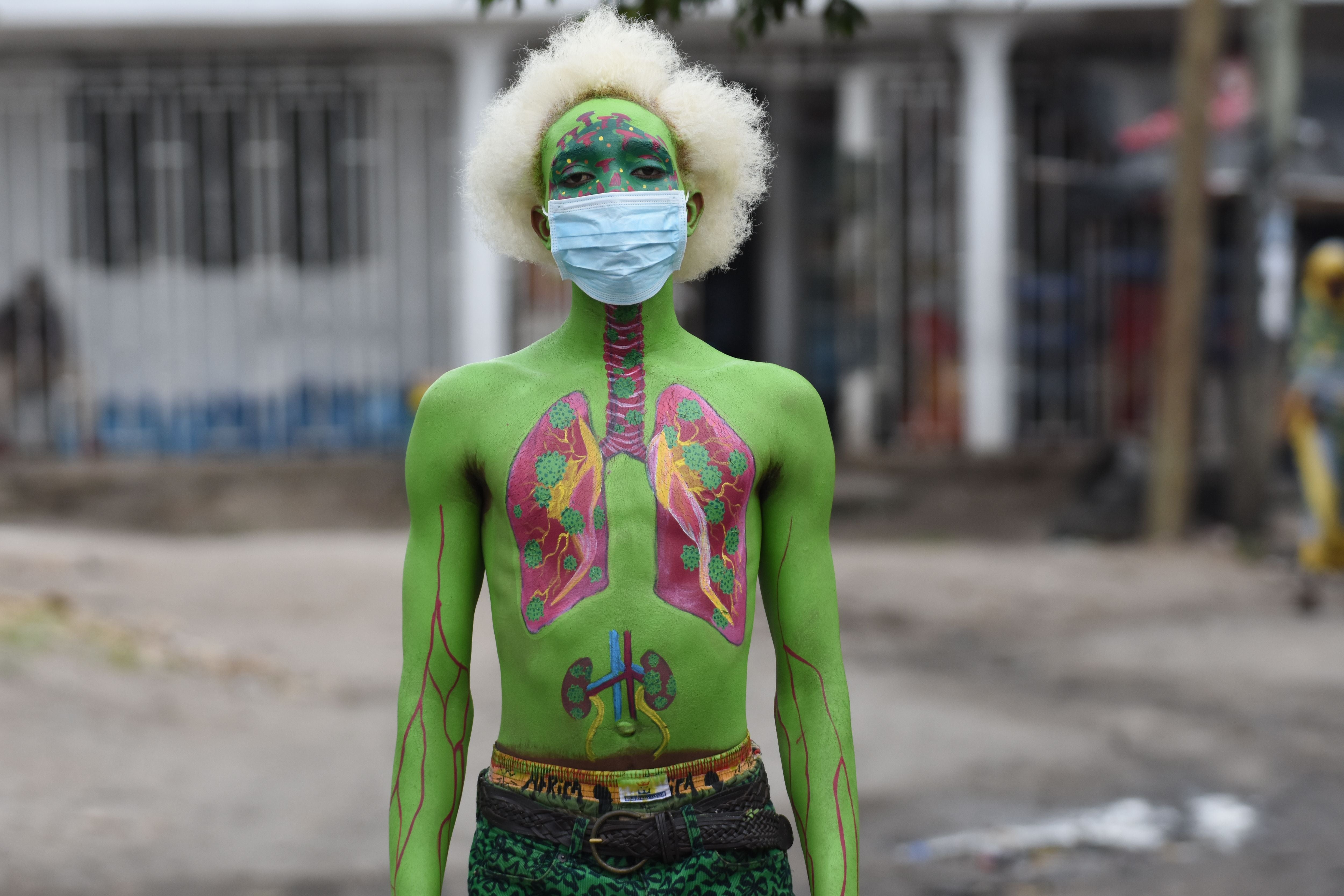Tanzania’s new vaccine rollout is overshadowed by aggressive misinformation tactics
As Tanzania embarks on its vaccine campaign, public health officials are battling a tide of misinformation propogated by the former president, writes Sammy Awami in Dar es Salaam

Reluctance is rife in Tanzania as the country embarks on its mass vaccination programme on Tuesday. Last week, President Samia Suluhu Hassan was the first to take a jab at the statehouse grounds in the commercial city of Dar es Salaam, as she kicked off the campaign on a live nationwide broadcast event.
Hassan moved to appeal to Tanzanians to consider taking the vaccines while assuring them of its efficacy and safety.
“I am a mother of four children who depend on me. I am grandmother to several grandchildren who loves me so much and I love them very much. I am also a wife. And on top of all of that I am a president and commander-in-chief in this country. There is no way I could have sacrificed myself and take myself to death knowing that I have all these responsibilities,” said Hassan.
The vaccination programme comes as the government warn of possible third wave ravaging parts of the country. However, it’s unclear how widely spread the infections are as the government releases figures only sporadically.
Just a few months ago, we couldn’t even call this disease by its name, Covid-19, and now we have campaigns all over the media and other platforms rallying people to take the vaccines and take precautions against the pandemic
While there are no mandatory preventative measures in place, the vaccine campaign is the biggest policy departure from the past administration which was known for adopting controversial positions regarding ways to fight the disease and the vaccine.
“This is a significant change of direction for our country” says Dr Elisha Osati, Internal Medicine Specialist at the national referral hospital Muhimbili.
“Just a few months ago, we couldn’t even call this disease by its name, Covid-19, and now we have campaigns all over the media and other platforms rallying people to take the vaccines and take precautions against the pandemic,” says Dr Osati, the former president of the medical association of Tanzania.
A scientist with a PhD in Chemistry, former president John Magufuli undermined the severity of the disease and argued that reminding people to take precautions and imposing restrictions to fight Covid-19 was instilling fear among the public

Identifying himself as a Pan-Africanist, he encouraged Tanzanians to use traditional herbal medicine and use prayer to fight Covid-19. A devout Catholic, Magufuli later claimed God had answered the prayers and healed the nation from the pandemic.
He championed conspiracy theories about the disease being a hoax and warned the public against rushing to get vaccinated, alleging the jab was not safe.
This led to a wider crackdown against the media and individuals who contradicted the government’s policy. A local online TV station was shut down for 11 months for reporting an embassy’s statement on the status of the disease, while another three national television channels were fined and ordered to apologize for allegedly spreading false and misleading information on the government’s handling of the Covid-19 pandemic.
I am particularly concerned by the fact that I will have to sign a form which says the hospital or doctor or the government will not be liable for anything in case I get side effects from this vaccine
The new government U-turn is a result of a presidential commission formed by Hassan shortly after she took office. The commission recommended that the government should adopt a scientific approach, emphasising preventative measures and launching a vaccine rollout.
Some observers believed the formation of the commission was a move to shield the president from potential blame from the Magufuli supporters
Even as the government has changed its mind, the public is still widely divided on whether or not to take the vaccine. Misinformation regarding the jab from the last administration is still rife and is openly peddled by influential individuals.
At the forefront of this is a Dar es Salaam based self-proclaimed Pentecostal bishop and a ruling party member of parliament, Josephat Gwajima, who has thousands of followers across the country.
And although he is being reprimanded by his own party, CCM, for undermining the government’s efforts to keep the country safe, Gwajima has repeatedly used his gatherings, broadcast live online, to question the safety of the vaccines and warn his multitude that their lives are at risk if administered.

Despite ongoing efforts to assure the public of the safety of the vaccine, many are not convinced.
A food vendor at Mbezi Beach, a suburb of Dar es Salaam, said she still believes what former president said: that vaccines could be poisonous. She said she wouldn’t change her mind now just because the new administration says its safe.
“I have only one body and I can’t risk getting injected with things whose efficacy is questionable. In case the spread of the disease gets out of hand, I’d rather run to a small and remote village far away from a big city like Dar and hide there than try something that even some health experts aren’t too sure about ,” said the woman in her mid-forties who refused to share her name.
A shopkeeper in the same suburb said his concern is the short period of time used to get the vaccines. He says he remembers the former president saying the process to get one credible vaccine usually takes a long time and takes many stages, and he is not convinced that the vaccines when through all the necessary procedures.
“I am particularly concerned by the fact that I will have to sign a form which says the hospital or doctor or the government will not be liable for anything in case I get side effects from this vaccine. Why sign that form if the vaccine is safe? For that reason, I won’t get vaccinated” said Christopher Kipeke
Dr Osati acknowledges the challenge of getting many people vaccinated but he nevertheless appreciates the government’s change of course in fighting the pandemic
“It is going to be very challenging to convince many people but eventually we will succeed. The government just needs to prepare to use as many tactics as possible in educating the mass about the vaccine” said Dr Osati.






Join our commenting forum
Join thought-provoking conversations, follow other Independent readers and see their replies
Comments